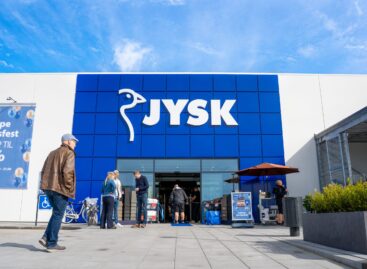It will be more expensive, but starting school means less of a burden
Despite rising costs, this year overall, families feel the start of the school year to be somewhat less of a burden, according to Erste’s representative research. However, the majority still do not have enough monthly income to manage the expenses associated with schooling. Many people are already saving in advance for the autumn, and there are also those who take out loans because of the start of school.
Almost two-thirds of families expect that it will cost more to send their children to school this year than last year, according to a survey of 300 people representing the 16-59-year-old population of Erste Hungary. Most people calculate between HUF 20,000 and HUF 50,000 per child, but according to a significant number of parents, about a fifth, the costs can reach HUF 100,000, and another 6 percent expect even higher expenses. Enrolling younger children aged 6-10 may cost a little less, most of their parents estimate spending between HUF 20,000 and HUF 30,000, while for older children aged 10-18, the amount between HUF 30,000 and HUF 50,000 is more typical.
The biggest challenge related to schooling is financial – out of the possible answers, this was indicated by almost two-thirds of the parents. Almost half of the respondents find it difficult to get everything before the start of the school year. Gathering information about the necessary tools causes problems for a third of parents, but a quarter of them even feel that packing notebooks and books is a difficult factor during this period. Starting school represents a significant financial burden for 69 percent of parents (73 percent in last year’s survey on the same topic), and another 6 percent (8 percent last year) declared that they would not even be able to raise the required minimum. On the other hand, 24 percent of parents (19 percent last year) answered that starting school does not cause much or no financial problems.
Among the types of publications, stationery (58 percent) is in first place, teaching tools (57 percent), such as rulers and compasses, are in second place, while notebooks (56 percent) are in the top 3. 46 percent plan by buying sports equipment and bags. Parents buy the things they need to buy mainly in paper and stationery stores (57 percent), but there are slightly fewer (56 percent) who buy the things they need in large hypermarkets. Some more, some less, but overall 60 percent of parents are oppressed by the feeling that they have to solve the tasks related to the beginning of the school year, while 21 percent do not feel this is a burden at all.
Related news
Related news
Festival buzz at the 60th anniversary EuroShop trade fair
🎧 Hallgasd a cikket: Lejátszás Szünet Folytatás Leállítás Nyelv: Auto…
Read more >No matter how much you save, food and gadgets always take the money
🎧 Hallgasd a cikket: Lejátszás Szünet Folytatás Leállítás Nyelv: Auto…
Read more >Historic price reduction at ALDI
🎧 Hallgasd a cikket: Lejátszás Szünet Folytatás Leállítás Nyelv: Auto…
Read more >








